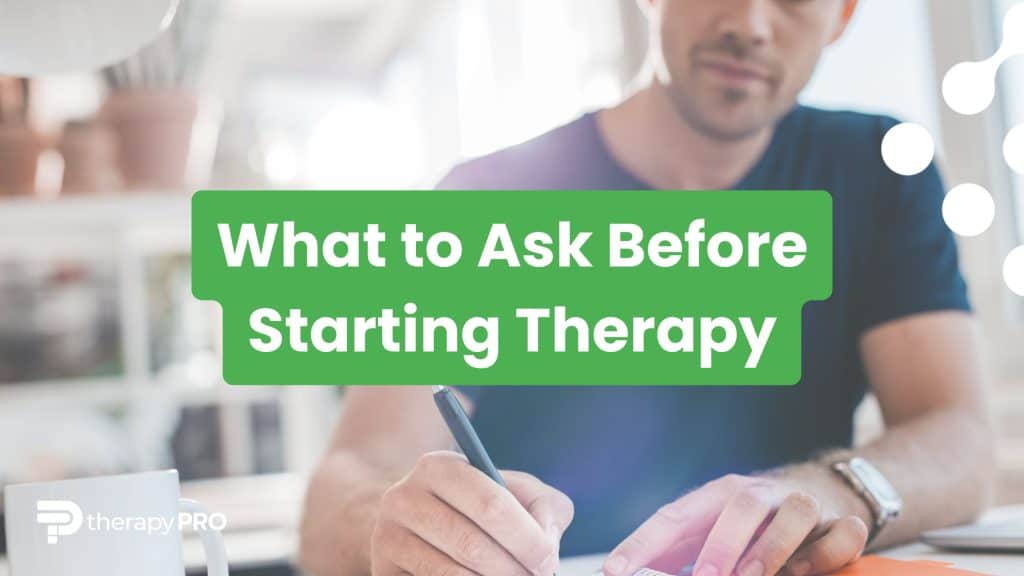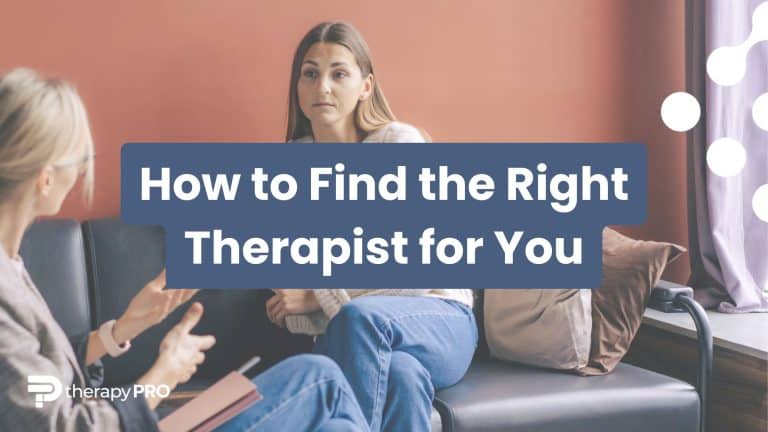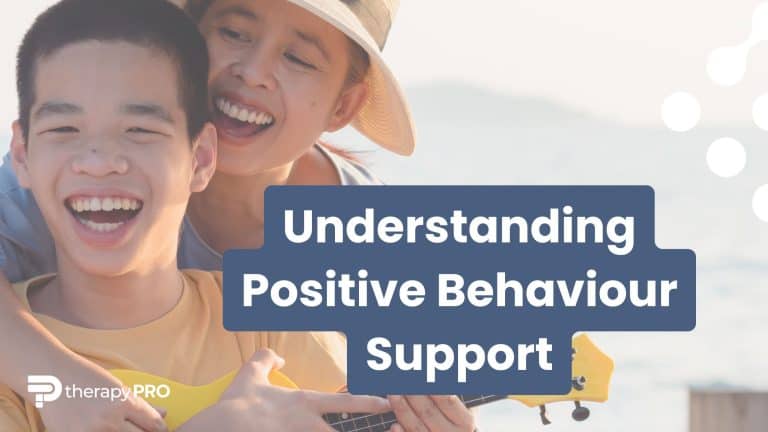What to Ask Before Starting Therapy
Starting therapy can feel like a big step.
You might be wondering what therapy will be like, what to ask before starting therapy, or how to know if a therapist is the right fit.
The truth is, you don’t need to have it all figured out before you begin. Asking questions is a powerful part of the process. It helps you feel informed, supported, and comfortable as you take the next step toward your goals.
In this article we’ve outlined:
- Some questions to ask yourself before you start therapy
- Some questions to ask your therapist
- What to do before committing to ongoing therapy
- Practical tips to be prepared for your first session
The questions and practical tips can be used across many different types of therapy including psychology, speech therapy, occupational therapy, social work support, or positive behaviour support.
Let’s get started.
Questions to ask yourself before you start therapy
Before your first session it’s helpful to reflect on a few questions yourself. These don’t need perfect answers, just honest ones. You may not know the answers to these questions, and that’s perfectly fine as well.
Consider these questions:
- What are my goals for therapy? Maybe it’s better communication, more independence, fewer meltdowns, or feeling confident in social settings.
- What’s getting in the way right now? Understanding the challenges helps your therapist tailor support.
- What would I like to see change because of therapeutic interventions? Having some ideas of this will be helpful to share with your therapist. It also keeps progress and strategies focused and measurable.
- What kind of support am I comfortable with? Knowing whether you prefer step-by-step coaching, play-based strategies, or practical tools can help guide your therapist’s approach.
Questions to ask your therapist
Every therapist is different. Asking questions helps you understand how they work and whether their approach feels like a good match.
You might want to ask before starting therapy:
- Have you supported people with similar goals or needs to mine? This helps you understand their experience, and how it aligns with the support you’re seeking.
- What does a typical session look like? Even if you have an understanding or a general sense of how therapy works, keep in mind that you haven’t had a session with this particular therapist. Asking what a typical session with them looks like gives you clarity. It could be talking, playing, doing activities, learning strategies, or using tools like visuals or assistive tech.
- How do you measure progress? Your therapist should explain how you’ll track changes and celebrate wins along the way. For NDIS participants, these strategies should be included in your NDIS plan.
- How often do sessions happen, and how long will therapy last? Knowing what to expect upfront can help you plan and feel more confident.
- Do you offer therapy at home, in the community, or via telehealth? Many of our Therapy Pro therapists come to you or can meet with you via telehealth, whatever suits your needs best.
- What happens if I feel therapy isn’t working? This shows the therapist is open to feedback and can adapt their approach.
For parents: You might also want to ask how the therapist will include you in the sessions or communicate with your child’s school or other supports.
Head on over to our blog to find out more on how to find a therapist that is the right fit for you.
What to do before committing to ongoing therapy
Asking these questions can help you feel more confident about whether a therapist is the right fit – but you don’t have to wait until your first session to start the conversation.
That’s why we offer a free initial call with one of our therapists.
It’s a no-pressure way to talk through your needs, ask any early questions, and get a feel for the support available before you commit to ongoing therapy.
During the call, we’ll:
- Listen to what you or your child needs help with
- Talk about which therapy options might suit your goals
- Let you know what the next steps look like
There’s no pressure to commit to ongoing therapy after the call, it’s simply a chance to connect and find out more.
Practical tips to be prepared for your first session
Should you decide to continue with ongoing therapy, here are a few practical tips to make the most of it:
- Write down your questions or goals ahead of time
- Bring along any reports or documents you’d like to share
- Wear something comfortable
- It’s okay to feel nervous, your therapist will meet you where you’re at
If you’re supporting a child, you might also want to let them know that therapy is a safe space to have fun, talk about their feelings, or learn new things. If your child requires a comforter, or has sensory needs, consider packing a cuddle toy or a fidget to help with emotional regulation in a new environment. It’s okay to bring water and a snack as well.
Ready to start? We’re here to help
Whether you’re looking for support with mental wellbeing, daily living skills, communication, behaviour, or social connection, our team is here to help.
While free therapy in Australia isn’t widely available, we do think that the next best thing is a free initial call with a therapist.
Consider booking a free initial call with a local Therapy Pro therapist to ask questions and find out what therapy could look like for you or your family. Fill in the booking form below and our customer services team will reach out to you within 2 business days.




